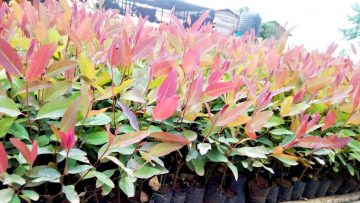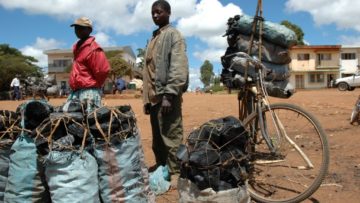Deforestation and degradation rates in Uganda are not specific to a single driver. Current conservative estimates suggest a 2% deforestation for private lands and 1% for protected areas annually. Some studies have indicated a higher rate (3.3%) due to agriculture in certain sites. Most of the biodiversity loss is related to small holder farming through expansion of fields into forested areas. In some locations, the conversion of savannah grasslands and wetlands for maize and rice growing respectively has impacted biodiversity. This project thus seeks to transform agriculture into an enhancer of biodiversity through increasing the share of trees on farm which will ultimately lead to increased biodiversity in the farmlands. Agrobiodiversity is an opportunity to achieve national targets and also improve the livelihoods of communities and small holder farmers. Approximately half of the land area of Uganda is committed to agriculture, mostly small-holder farms growing food crops, as well as cash crops. Subsistence agriculture is the most practiced, but there are several areas of large-scale farmland especially focusing on sugarcane, palm oil and rice. They all together account for 89,600 km2. A national application of the IUCN Restoration Opportunities Assessment Methodology (ROAM) revealed 8 million hectares primed for restoration and an economic analysis identified agroforestry, woodlots and farmer managed natural regeneration as the cheapest and most effective mechanisms of landscape restoration in Uganda.
Activities
Completed biodiversity surveys to develop an index for measuring the role of trees to biodiversity conservation
Completed the household surveys to develop an options manual of what informs farmers to integrate trees on farm.
Participated in the Africa Regional Dialogue for mainstreaming biodiversity in agricultural sectors
Organised a workshop for key stakeholders at national level in the coffee sector to quantify the contribution of trees to carbon sequestration.
Organised regional and national workshops to carry out Net-Mapping for key stakeholders and their roles in biodiversity and environment.
Undertaking a policy and institutional analysis for biodiversity conservation in Uganda.
Developing a knowledge product on the role of trees on farm to livelihood resilience in Uganda.
Organising a workshop for financial institutions to climate-proof their investments.
Uganda News & Stories

Nature-based solutions for restoration of Uganda’s degraded land
SDG SDG01-Poverty eradication, building shared prosperity and promoting equality, SDG02 – Sustainable agriculture,...
Read More
Can we grow our way out of the charcoal crisis?
Charcoal production in much of Africa is not only a major source of energy but also often illegal because of its apparent...
Read More
